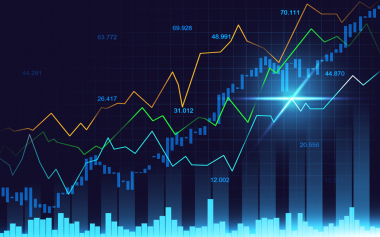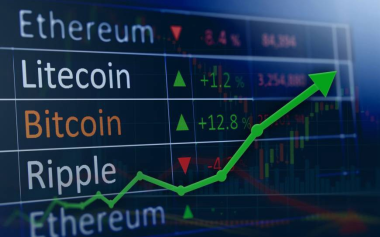Top yielding dividend stocks
One of the most common methods for investors to generate income is through high-yield dividend stocks, but they are especially crucial during times like now.

Interest rates are near ATL (all-time lows), so bonds are not generating nearly the same level of income as they have been doing historically. Also, stocks are not paying very much on average. The dividend yield on the S and P 500 Index is currently at a meager 1.3% – near its lowest level since the middle of 2001. Because of this, finding high-yield dividend stocks is now a priority.
But "chasing yield" can lead to disaster. Sometimes, a sky-high yield can just be a reflection of a low stock price caused by fundamental issues plaguing the company. That is why it's vital to target high-quality dividend stocks that also happen to pay generous cash distributions. That implies seeking out engrossing business cases, strong underlying fundamentals, and high marks by the business analysts who study these companies the closest.
These picks can be found in the healthcare sector, which is typically considered more defensive and safer and because of the near-constant demand for medicines and medical care.
Here are top-rated high-yield dividend stocks with "healthy" income.
Pfizer
- Market value: $246.1 billion
- POWR Ratings overall rating: A (Strong Buy)
- Dividend yield: 3.6%
- POWR Ratings average broker rating: 1.80
Pfizer is one of the biggest pharmaceutical firms in the world, with annual sales of over $40 billion. While the company has sold many types of chemicals and healthcare products, now, vaccines and prescription drugs account for the majority of sales.
PFE has 8 blockbuster products in its portfolio, including cancer drug Ibrance, immunology drug Xeljanz, and cardiovascular treatment Eliquis.
The company's alliance with GlaxoSmithKline (GSK) and the merging of its Upjohn unit with Mylan have made PFE a smaller company with so many portfolios of innovative drugs and vaccines. And this should bring in better and faster revenue growth. The company expects strong growth in key drugs, Inlyta, Ibrance, and Eliquis, to drive sales. Furthermore, its COVID-19 vaccine has become a key contributor to its top line.
Walgreens Boots Alliance
- Dividend yield: 4.1%
- Market value: $40.5 billion
- POWR Ratings overall rating: B (Buy)
- POWR Ratings average broker rating: 1.98
Walgreens Boots Alliance (WBA, $46.83). This Company was formed through the combination of Alliance Boots and Walgreen Co., and it operates over 21,000 locations in 50 states and eleven countries. It also includes the biggest global pharmaceutical wholesaler and distribution network, with over 390 distribution centers delivering to more than 230,000 pharmacies, doctors, health centers, and hospitals every year.
The company is benefiting from powerful growth in its international segment supported by the formation of its joint business with McKesson (MCK) in Germany. Faster inclusion of the Walgreens Find Care platform also bodes well. Plus, Walgreens Boots Alliance has added a slew of new products recently, including No7 Beauty Company, a consumer-led business creating beauty brands for every skin type, ethnicity, age, and texture.
Gilead Sciences
- Dividend yield: 4.2%
- Market value: $85.7 billion
- POWR Ratings overall rating: B (Buy)
- POWR Ratings average broker rating: 1.68
Gilead Sciences (GILD, $68.35). This company develops and markets therapies to treat life-threatening infectious diseases. The company specializes in HIV and hepatitis C and B. While GILD has been a major player in developing drugs for HIV, it also makes treatments for blood and liver diseases, as well as inflammation and cancer, and respiratory illnesses.
In October, the company was granted full approval by the Food and Drug Administration (FDA) to start using Veklury (remdesivir) to treat patients with COVID-19. This drug generated $2.8 billion in sales for Gilead last year. Furthermore, GILD can generate high-profit margins with its HIV and hepatitis C portfolios, as these drugs only require a small sales force and inexpensive manufacturing. The firm offers several single-tablet treatments for HIV. Its next-generation HIV offerings, Biktarvy and Genvoya, are helping to grow market share, too.
AbbVie
- Dividend yield: 4.5%
- Market value: $203.9 billion
- POWR Ratings overall rating: B (Buy)
- POWR Ratings average broker rating: 1.54
AbbVie (ABBV, $115.45) is another drug company with strong exposure to immunology and oncology. The company's best performing drug, Humira, accounts for nearly 37 percent of ABBV's total revenues. The company acquired Botox maker Allergan in May 2020, and the business transformed ABBV's portfolio by reducing its dependence on Humira, its flagship product.
The firm's popular cancer treatment, Imbruvica, and its newest immunology drugs, Rinvoq and Skyrizi, make it well-positioned for long-term growth. So far, the 2 immunology drugs are doing well beyond expectations. The company has also been able to expand labels of Imbruvica and another cancer drug, Venclexta. Plus, the firm has a strong late-stage pipeline with several candidates that have blockbuster potential. Still, though, Humira continues to drive revenues. The drug is currently approved for 10 indications in the U.S., and sales have increased consistently due to strong demand trends. The drug is seeing especially impressive domestic growth in the dermatology and gastroenterology markets.







